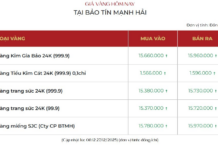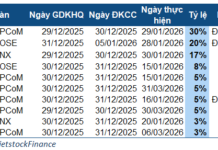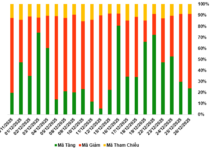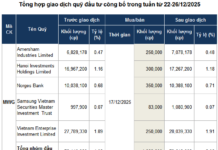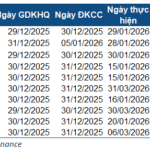According to a newly released market report by the Ministry of Construction, real estate transactions in Q3 saw a significant decline, particularly in the apartment and detached house segments. The quarter recorded a total of nearly 136,700 transactions, marking a 13% quarterly drop and over 3% year-on-year decrease.
Specifically, the apartment and detached house segment reported more than 32,100 transactions, equivalent to 93% of Q2 and a 16% decline compared to the same period last year. Similarly, land plots recorded nearly 104,600 transactions, falling by almost 15% quarter-on-quarter.
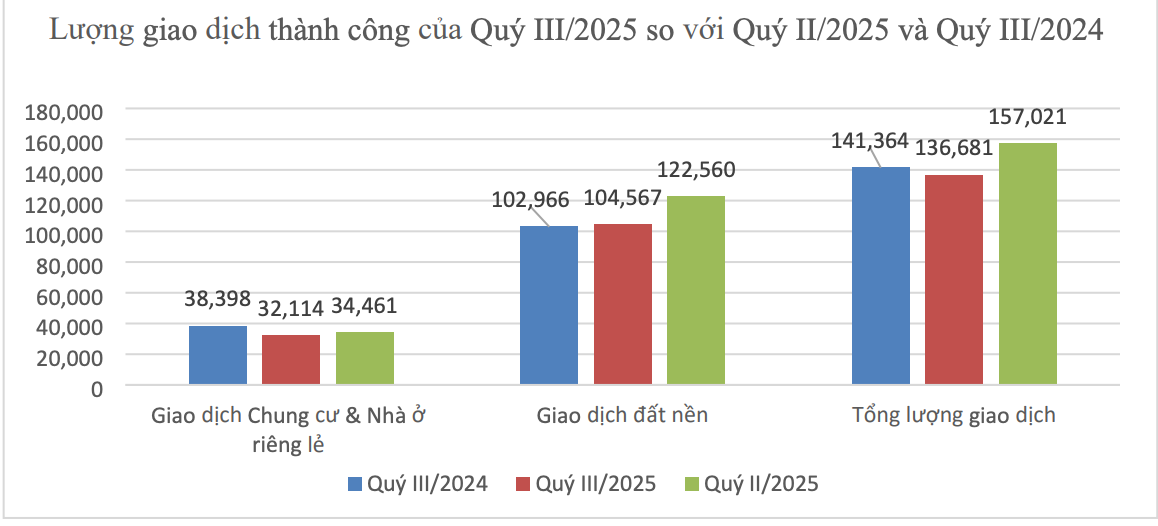
Sharp decline in transactions during Q3/2025.
Meanwhile, the supply of housing projects continued to rise. This quarter saw nearly 9,500 completed units, doubling the previous quarter’s figure and increasing by 31% year-on-year. The volume of eligible-for-sale units also surged by 43% compared to the same period last year.
Despite the drop in transactions, prices continued to rise. The Ministry of Construction noted that not only primary sale prices (developer-listed prices) but also secondary sale prices (resale prices) of apartments maintained an upward trend, setting new highs in Q3, particularly in projects with completed infrastructure.
The primary drivers of this trend include land scarcity, rising input costs, slow legal procedures, and high expectations from developers.
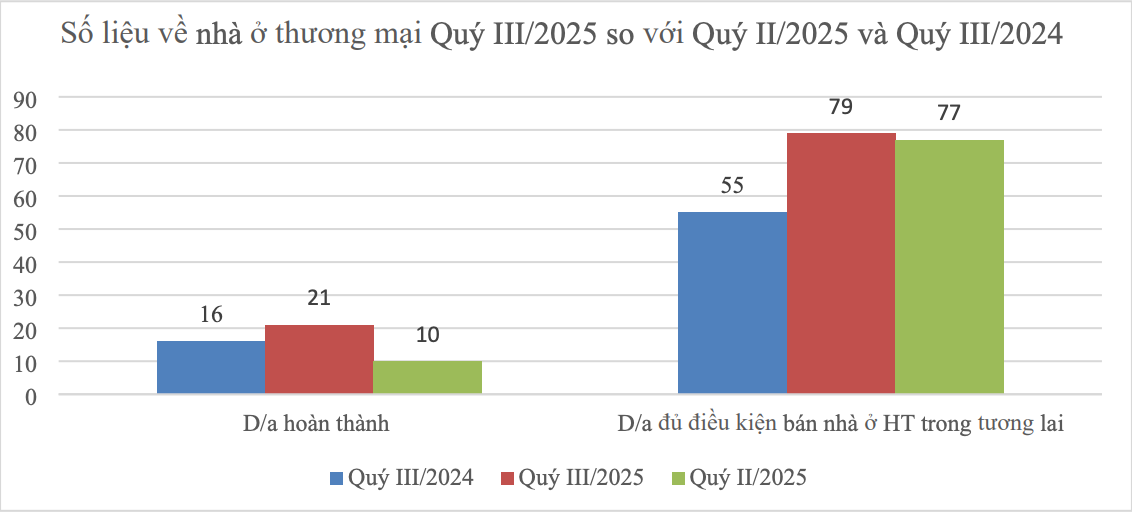
Housing supply also increased this quarter.
In Hanoi, primary sale prices for apartments surged, with an average price of 95 million VND/m². Notably, over 43% of new supply was priced above 120 million VND/m².
The sharp rise in primary sale prices drove up the overall market price levels.
The Ministry of Construction also reported that alongside the increase in apartment prices, average listing prices for villas and townhouses saw a slight uptick, rising by 1-3% depending on the project.
In response, the Ministry of Construction has proposed several measures to control housing prices.
These include focusing on perfecting institutions, policies, and laws related to housing, real estate business, land, planning, investment, construction, credit, and taxation to ensure consistency and uniformity.
Further streamlining administrative procedures and enhancing decentralization.
Reviewing and adjusting land use fees to prevent them from becoming a driver of excessive increases in real estate, housing, and land prices relative to residents’ incomes.
Developing and implementing breakthrough, flexible, and favorable mechanisms to attract resources for developing housing segments priced appropriately for residents’ incomes.
Prioritizing the development of social housing to meet the target of 100,000 social housing units in 2025, as assigned by the Government.
Reviewing and resolving bottlenecks for real estate projects, particularly in planning, compensation, site clearance, and land allocation/lease, to expedite project completion and increase market supply.
Continuing to monitor market information to promptly introduce solutions and management mechanisms aimed at ensuring a stable, safe, and sustainable market.
Major Changes to Land and Property Documents Effective November 1st: What Every Citizen Needs to Know
As of November 1st, new regulations will bring significant changes to various procedures related to real estate transactions and documentation.
Affordable Housing: Testing the Restructuring Capabilities of Real Estate Enterprises
After the first nine months of the year, the supply of affordable and mid-range housing remains scarce, while property prices in major cities continue to soar. In response, the proposed development of reasonably priced commercial housing is anticipated to diversify the market, balance supply and demand, and stabilize prices. However, for this policy to be effective, experts emphasize the need to refine legal frameworks, offer investment incentives, and ensure viable profit margins for developers.
Unlock the Future of Real Estate: Ministry of Construction Promotes Online Property Transactions
The Ministry of Construction is seeking public input on a draft decree regarding the development and management of housing databases and the real estate market. Notably, the proposal encourages real estate transactions to be conducted through trading centers or electronic methods. This initiative is seen as a significant step toward enhancing transparency, improving oversight efficiency, and gradually establishing a digitized real estate market in Vietnam.










